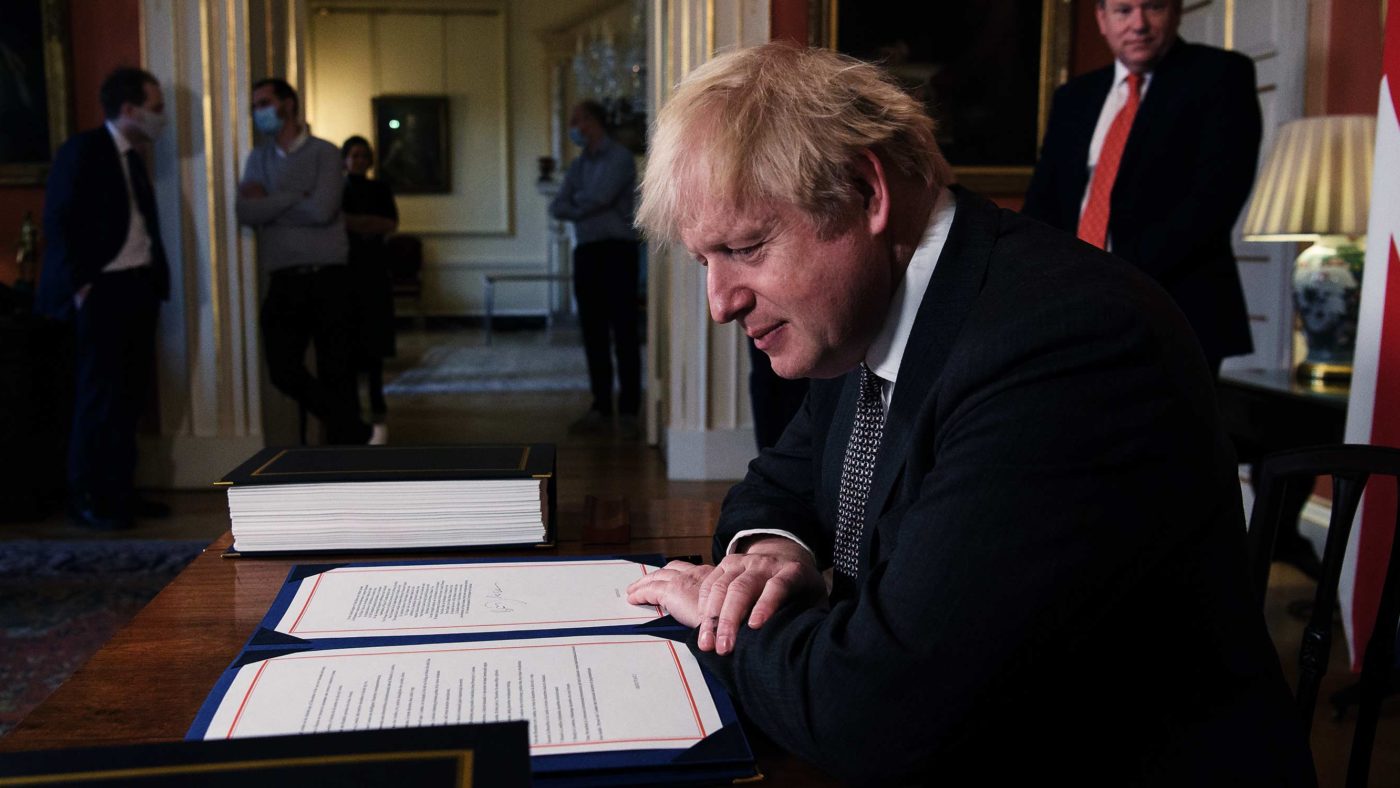Much hullabaloo is being kicked up because Brussels is now estimating the Brexit divorce bill at £41 billion over whatever period in their latest accounts, a £2 billion (or was it £6 billion?) increase over the previous OBR estimate of £35-39 billion.
The Centre for Brexit Policy made it clear last year that the wording of the Withdrawal Agreement left the UK open to a risk of both a great difficulty in determining a final figure and an escalation in the basis of the calculation. Downing Street pushed the Withdrawal Agreement through anyway, without closing off these loopholes.
It is some comfort that Brussels’ current estimate is close to that of our own Office for Budget Responsibility. The worry remains, though, that this cash amount assumes that there is no conversion into a cash claim of the EU-level Contingent Liabilities that were engaged during the UK’s membership, such for the borrowings funding the European Financial Stabilisation Mechanism, or for the guarantees to the European Investment Bank for its lending outside the EU and for its dealings in the InvestEU structure. Some of the InvestEU transactions have no end date.
If the UK has signed a deal, it needs to honour it; if the UK’s consideration is payable over an extended period the UK has a lever with which to force the EU’s compliance with whatever they agreed to under the same deal.
That is not the only good news. The UK is not now co-responsible for the €750 billion Covid recovery fund (NextGeneration EU). The borrowings taken on to create this fund will be repayable from 2030-2050 at a rate of around €40 billion per annum, of which the UK’s share would have been €4-5 billion. Whether this amount would have been categorised as extra member state cash contributions, member state loan repayments or new taxes that count as the EU’s “Own Resources” is immaterial: the EU’s borrowings would have imposed an extra annual burden of €4-5 billion on the UK on top of the net member state cash contributions of €10-11 billion.
Moreover, the financial risk of EU membership is rising. The European Investment Bank has declared itself to be the EU Climate Bank and is rapidly ramping up its “investments” in that area.
The European Central Bank has ramped up its support programmes such that they represent 100% of Eurozone GDP and without an exit route beyond a comprehensive re-set of obligations which cannot fail to involve the member states that are not in the Eurozone, of which the UK was easily the largest.
The EU has not and appears not to be planning to use the substantial headroom under the 2013-2020 EU budget to create extra Contingent Liabilities that the UK would have to share in. The headroom has not yet been converted into new programmes and, even though there is a carry-over until the end of 2021 for the headroom to be mobilised, the EU is now concentrating its new programmes within the 2021-27 budget. That has let the UK off the hook for possibly as much as €200 billion of new risk that would have counted within the EU Contingent Liabilities in-scope of the Withdrawal Agreement.
Set against all of that, £40 billion spread over many years may turn out to be a very good deal for the UK – but of course we can only hope that the in-scope EU Contingent Liabilities do not crystallise into a demand for cash over and above the £40 billion.
Instead of cavilling about a potential uplift of £2 billion – which makes Downing Street and the UK appear churlish – Downing Street should ensure the EU delivers properly on its reciprocal obligations.
After all, £2 billion is small change compared to some of the amounts that the Government has wasted or overpaid during the Covid epidemic, or which it has allowed to be plundered by criminals from the public purse through its Covid support measures.
That incompetence is paralleled by the loopholes left in the Withdrawal Agreement around EU Contingent Liabilities. The UK remains a hostage to fortune in that arena, possibly for eternity. The Centre for Brexit Policy warned about this. Downing Street’s carping over the cash estimate looks like an attempt to blow smoke in people’s eyes.
Click here to subscribe to our daily briefing – the best pieces from CapX and across the web.
CapX depends on the generosity of its readers. If you value what we do, please consider making a donation.


